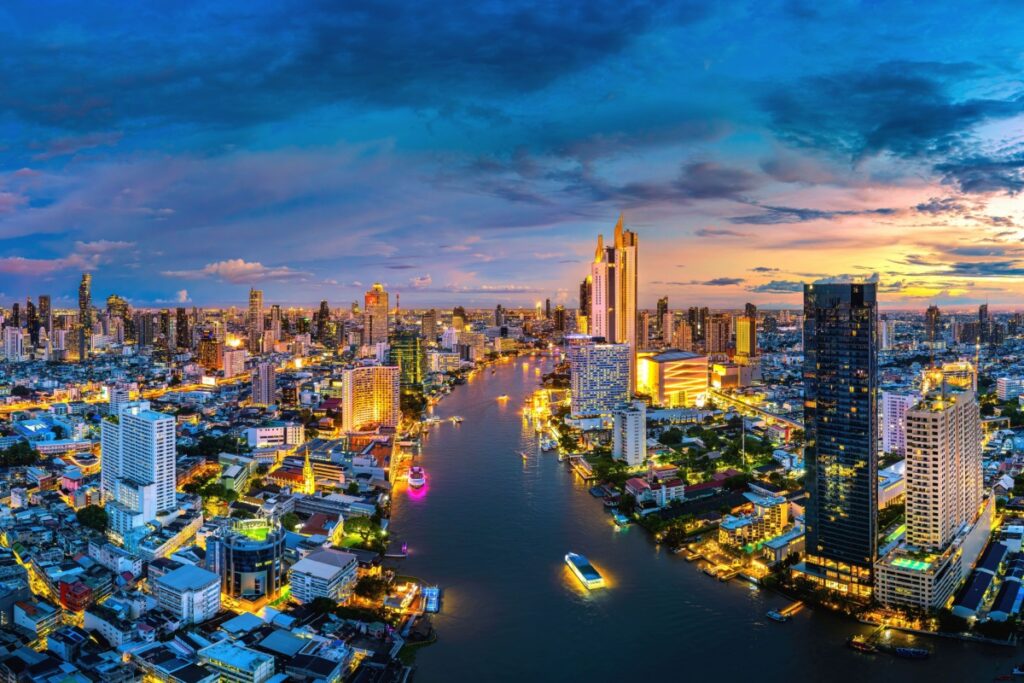Time Out’s 2025 edition of its “World’s Best Cities” ranking offers a fresh perspective—this time, focusing exclusively on what Generation Z (under-30s) values most in urban life. Drawing on a survey of more than 18,500 local residents per city, combined with evaluations by a panel of experts, the study captures the priorities of younger urban dwellers—affordability, inclusivity, nightlife, cultural offerings, ease of social connection, and overall happiness.
Unlike the general rankings, which often weigh infrastructure, tourism appeal, and economic opportunity, this Gen Z-filtered list reflects the lived experiences of those navigating early adulthood in complex urban environments. The top three cities—Bangkok, Melbourne, and Cape Town—offer a blend of community spirit, affordability, and cultural vibrancy that resonates deeply with younger residents.
City Highlights: What Makes These Three Stand Out
Bangkok, topping the list, earns its crown thanks to exceptional scores in happiness, affordability, and social connectivity. A remarkable 84 percent of respondents say they’re happy living there, while 71 percent praise its affordability. For many, Bangkok is a city where it’s not only possible to live well on a budget, but also easy to meet new people and integrate into local communities.
Melbourne’s appeal for young people lies in its dynamic cultural scene and strong emphasis on diversity. 96 percent of Gen Z residents rate the arts and cultural life highly, and 77 percent consider it inclusive and diverse. The city is also recognized for its accessible public spaces, thriving music venues, and a lifestyle that blends cosmopolitan energy with community warmth.
Cape Town takes third place, celebrated for its spectacular natural setting and vibrant social life. 82 percent of locals report being happy there, 71 percent value its beauty, and 76 percent say nights out are affordable. For many Gen Z residents, Cape Town strikes a rare balance between scenic quality of life and an active, engaging urban rhythm.
Broader Global Context: Other Rising Gen Z City Favorites
Beyond the top three, the list showcases a range of cities where Gen Z finds cultural, social, and economic alignment. New York City places fourth, praised for its unmatched nightlife, walkability, and constant energy. Copenhagen ranks fifth, with younger residents citing both personal happiness and an openness to new social and romantic connections.
Barcelona, in sixth place, is the only Spanish city in the top ten. It combines Mediterranean charm with modern inclusivity, as 77 percent of young locals highlight its diverse, welcoming atmosphere. Other notable entries in the top ten include Edinburgh, Mexico City, London, and Shanghai. These cities collectively demonstrate that Gen Z’s priorities span continents, climates, and cultures, yet share common threads of affordability, diversity, and social vibrancy.
Further down the top twenty, cities like Tokyo, Berlin, and Lisbon prove that both established global hubs and emerging cultural capitals can appeal strongly to young urbanites when they deliver on connection, creativity, and accessibility.
Why These Cities Appeal Strongly To Gen Z
The urban centers celebrated in this ranking succeed because they offer more than jobs or attractions—they deliver experiences that align with Gen Z’s evolving definition of a fulfilling life. High happiness scores signal environments where mental well-being is supported. Reasonable costs allow young residents to participate fully in city life without financial strain. Diversity and inclusivity foster communities where individuals feel they belong, while rich cultural offerings—from street festivals to nightlife—provide spaces for both expression and exploration.
Bangkok, Melbourne, and Cape Town, along with the other ranked cities, prove that when places make room for connection, affordability, and authenticity, they can earn the loyalty of a generation that values experiences and human connection as much as economic opportunity.


